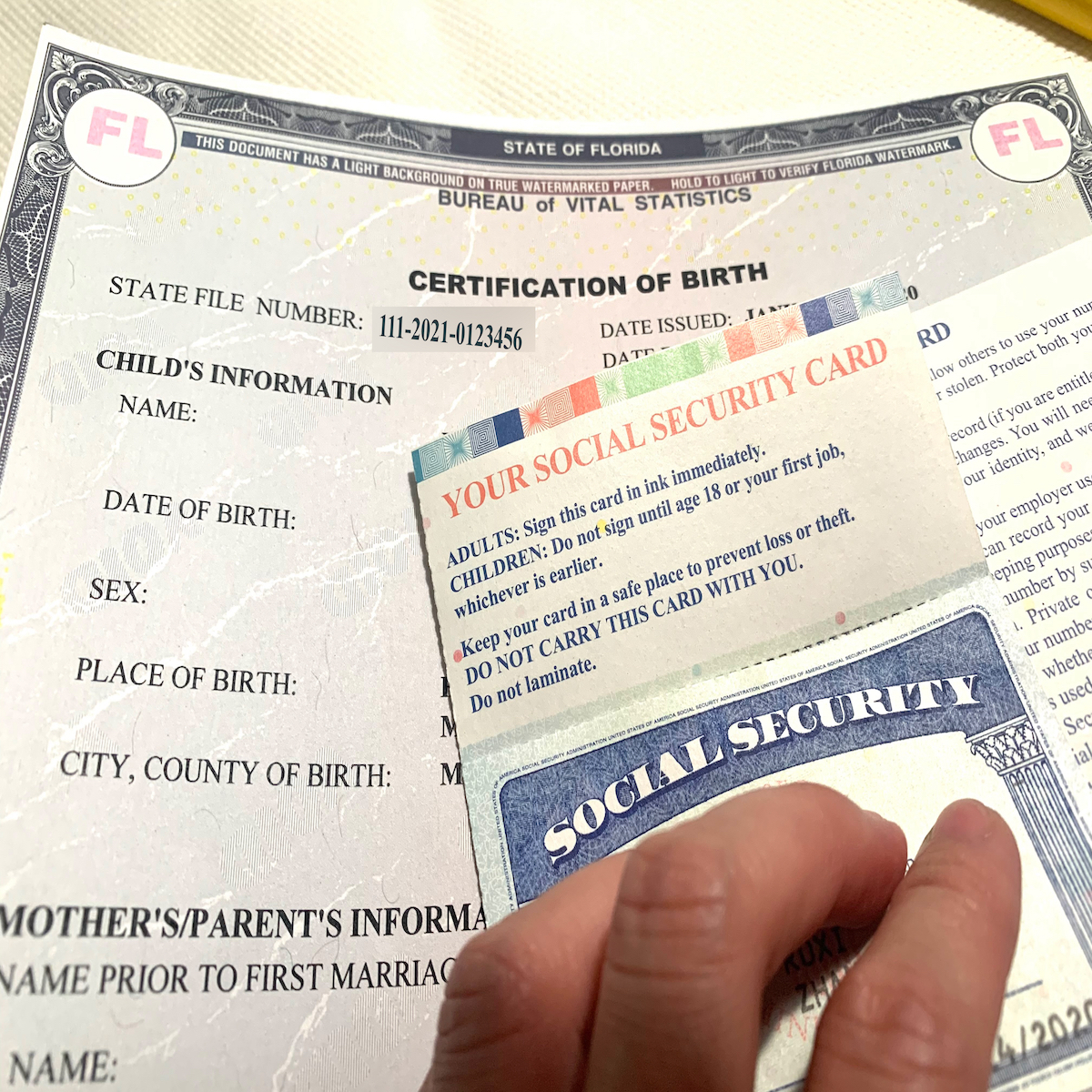
How to Get on Birth Certificate: Step-by-Step Help
Why Birth Certificates Matter
A birth certificate is a legal vital record. It proves identity, legal parentage, and relationships with family members. You may need it for:
- School enrollment
- Applying for a passport or ID
- Travel or immigration
- Child support or custody
- Accessing death certificates
- Tracing family history
If a parent’s name is missing or details are incorrect, you can fix the birth record. This guide shows you how.
Who Can Be Added to a Birth Certificate?
You can be added if you are:
- A biological or adoptive parent
- A legal guardian
- An adult correcting your own record
Laws differ by state. Please contact your local vital records office for the correct forms and instructions.
What You’ll Need
For Parents Not Listed at Birth
If you were not added when the child was born, you may need:
- A signed acknowledgment of parentage
- A court order (if the other parent disagrees)
- DNA results from approved genetic testing
- A certified copy of the existing birth certificate
- A photo ID (passport or license)
If the child’s birth happened at home or was delayed, include:
- Medical or hospital reports of birth
- Witness statements
- Early records from school, church, or doctors
For Adults Fixing Their Own Record
You may need:
- A signed affidavit of correction
- A certified copy of your current birth record
- Valid photo ID
- A court petition and court order if your name changed legally
How to Apply
There are three main options:
- Online through your state’s vital records office or a trusted site like VitalChek
- By mail, using a money order or credit card, plus copies of your ID and forms
- In person at your state or county vital records office
Make sure you include:
- Correct forms
- Photo ID
- Required documents like DNA testing results or court orders
- Payment (check, money order, or credit card)
How Much It Costs
Most states charge $10 to $30 for a change. Each certified copy of your updated birth certificate may cost extra.
The processing time usually takes 2 to 12 weeks. Mailing takes another 5 to 10 business days. Some states offer rush service for an extra fee.
Special Situations
LGBTQ+ Parents
Some states automatically allow both married parents to appear on the birth certificate. Others may need a court order or second-parent adoption to prove legal parent status.
Child Born Outside the U.S.
If your child was born abroad, you should apply for a Consular Report of Birth Abroad (CRBA). It is issued by a U.S. embassy or consulate. This consular report acts like a birth certificate for legal use and citizenship.
Adoption or Surrogacy
If the child was adopted or born via surrogate, submit a court order proving legal parentage. You can then apply for an updated birth certificate that lists the correct parent(s).
Why DNA Testing Matters
DNA testing is often used in court to prove a biological relationship. Tests include saliva or cheek swabs. Results are usually ready in 1–3 weeks.
Courts may ask for certified results from a lab. Home kits might not count. Always check with your court before using a test.
Once you have your DNA results, you can attach them to your court filing.
Filing a Petition: How It Works
You may need to file a court petition if:
- There is no agreement between parents
- You’re changing your legal name
- You’re updating an old or incorrect record
Most family courts provide simple forms. You must explain:
- What changes you want
- Why they matter
- What proof you have (like DNA testing or old birth records)
A judge may schedule a hearing. If the court approves your request, it gives you an official court order. Send this with your form to the vital records office.
Timeline: What to Expect
Here’s a basic breakdown:
- DNA test: 1–3 weeks
- Court petition: 1–2 weeks
- Court hearing: Usually within 30 days
- Certificate change: 2–12 weeks
- Delivery: 5–10 business days
Ask your local office about faster services if needed.
After You Get the Updated Certificate
Once you receive your updated birth certificate, request extra copies. You may need them for:
- Travel or immigration
- School or medical registration
- Tax forms and Social Security
- Insurance or legal documents
You can also use it to prove identity for passports or apply for dual citizenship.
Where to Get Help
Still unsure? Please contact your state’s vital records office. They’ll guide you on how to start, what to submit, and what to expect.
You can also talk to a legal aid group or contact your county clerk. If your child’s birth was abroad, reach out to a U.S. embassy to start the birth abroad CRBA process.
Final Thoughts
A birth certificate is more than a form. It’s a legal record of your identity and your place in your family.
If you need to add, correct, or update a certificate, take action. Use genetic testing, file a court petition, and contact your vital records office.
With the right documents and a little time, you can fix your record—and protect your legal rights for years to come.
Would you like this as a downloadable PDF, formatted for WordPress, or tailored for a specific U.S. state?




.png)






